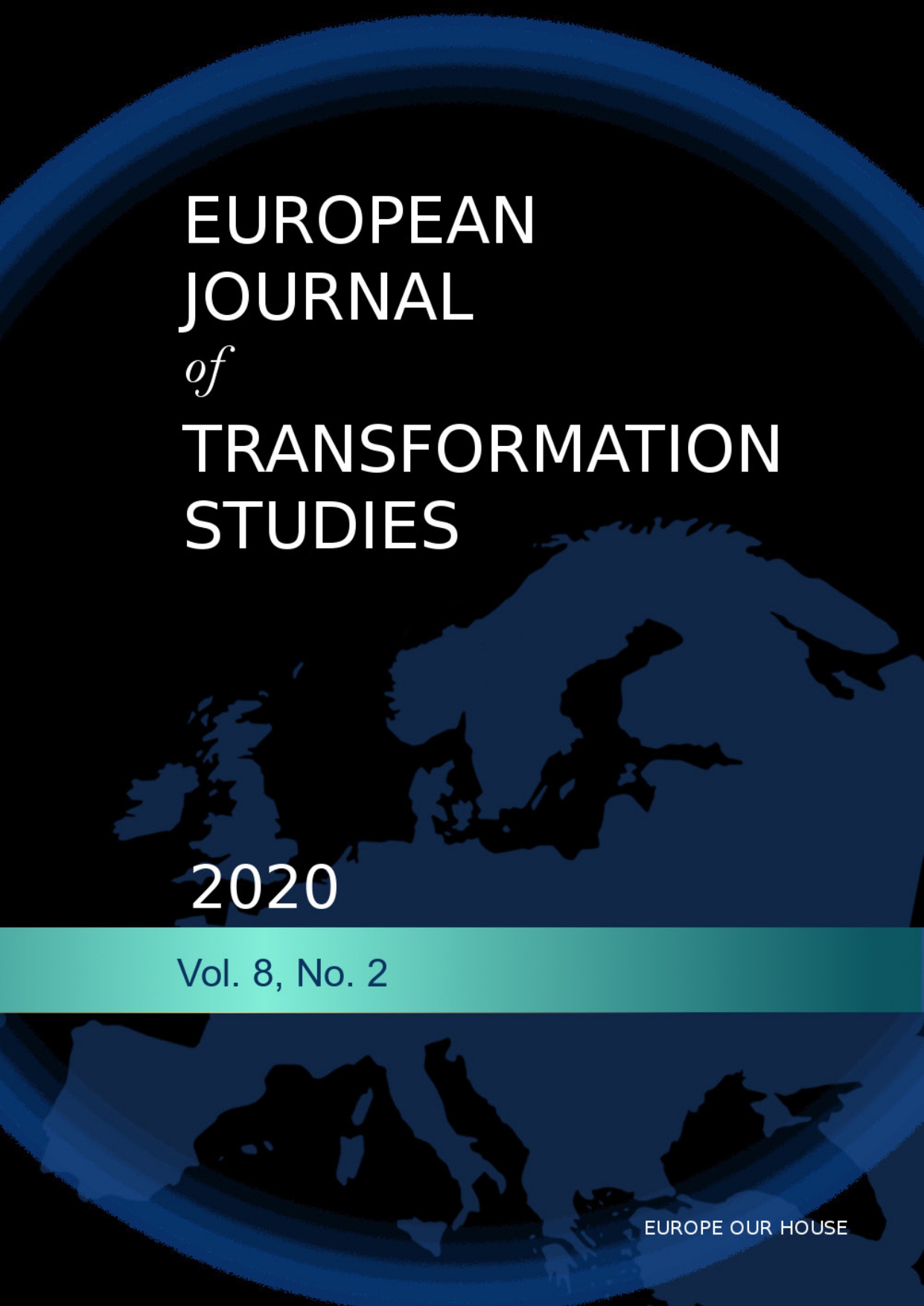Behavioural Approaches to Tax Collection: the Case of Slovakia
Słowa kluczowe:
behavioural approach of paying taxes, tax reliability, VAT fraudAbstrakt
Research studies demonstrate respect for the normative approaches to paying taxes, but they are extended by behavioural aspects affecting the tax liability of the taxpayer. A taxpayer’s decision to pay the tax is influenced, for example, by the social environment in which the entity operates, the moral standards of a group affecting attitude of the taxpayer to paying taxes, the degree of tolerance to tax evasion and to combating corruption, and so on. This confirms the relevance of both repressive as well as preventive state measures to collect taxes and eliminate tax evasion and fraud. The effective tax collection can be rather achieved by building mutual trust between the taxpayer and tax administrator using targeted instruments aimed at the voluntary payment of taxes on time and in the correct amount. On the basis of the questionnaire survey, the aim of the paper is to find out, analyse and evaluate the attitudes of the respondents to the effectiveness of tax audits in Slovakia, to the adjustment of the income tax base by means of legal or illegal instruments, as well as their attitudes towards fraud on VAT. The analysis of respondents’ attitudes regarding the illegal treatment of income tax and VAT pointed to relatively high tax discipline of taxpayers. The respondents expressed a different opinion on the effectiveness of tax audits in Slovakia. In their view, tax audits reveal to a lesser extent the illegal activity of taxpayers. Especially this knowledge highlights the importance of building a fair relationship between the taxpayers and tax administrator using some of the behavioural approaches outlined in the paper.
Downloads
Bibliografia
Allingham, M. G., Sandmo, A., (1972), Income Tax Evasion: A Theoretical Analysis. Journal of Public Economics, 1, pp. 323-338.
Alm, J., Torgler, B., (2011), Do Ethics Matter? Tax Compliance and Morality. Journal of Business Ethic, Vol. 101 (4), pp. 635-651.
Alm, J., McKee, M., (2006), Audit Certainty, Audit Productivity and Taxpayer Compliance. Andrew Young School Policy Studies Research Paper Series, Working paper 06-43.
Alm, J., Martinez-Vazquez, J., McClellan, Ch. (2016), Corruption and Firm Tax Evasion. Journal of Economic Behavior & Organization, 124 (C), pp. 146-163.
Becker, G., (1968), Crime and Punishment: An Economic Approach. Journal of Political Economy, 76 (2), pp. 169-217.
Bătrâncea, L., Nichita, R., Bătrâncea, I. (2012), Understanding the Determinants of tax Compliance Behavior. The USV Annals of Economics and Public Administration, 12 (1), pp. 201- 210.
Braithwaite, V. (ed.), (2017), Taxing democracy. Understanding Tax Avoidance and Evasion. London: Routledge.
Cullis, J., Jones, P., Lewis, A., (2006), Tax framing, Instrumentality and Individual Differences: Are there two different cultures? Journal of Economic Psychology, 27 (2), pp. 304-320.
Gangl, K., Torgler, B., Kirchler, E., Hoffmann, E., (2014), Effects of Supervision on Tax Compliance: Evidence from a Field Experiment in Austria, Economic Letters, 123 (3), pp. 378-382.
Hallsworth, M., List, J., Metcalfe, R. (2017), The Behavioralist as Tax Collector: Using Natural Field Experiments to Enhance Tax Compliance, Journal of Public Economics, 148 (C), pp. 4-31.
Kastlunger, B., Kirchler, E., Mittone, L., Pitters, J., (2009), Sequences of Audits, Tax Compliance, and Taxpaying Strategies, Journal of Economic Psychology, 30 (3), pp. 405-415.
Kirchler, E., Maciejovsky, B., Schneider, F., (2003), Everyday Representations of Tax Avoidance, Tax Evasion, and Tax Flight: Do legal Differences Matter?, Journal of Economic Psychology, 24 (4), pp. 535-553.
Litina, A., Palivos, T., (2016), Corruption, Tax Evasion and Social Values, Journal of Economic Behavior & Organization, 124 (C), pp. 164-177.
Murphy, K., (2004), The Role of Trust in Nurturing Compliance: A Study of Accused Tax Avoiders, Law and Human Behavior, 28 (2), pp. 187-209.
OECD, 2004, Compliance Risk Management: Managing and Improving Tax Compliance. Paris: OECD Centre for Tax Policy and Administration. Available at: https://www.oecd.org/tax/administration/33818656.pdf [Accessed 25th May 2019].
Orviská, M., Hudson, J., (2003), Tax Evasion, Civic Duty and the Law Abiding Citizen, European Journal of Political Economy, 19 (1), pp. 83-102.
Pyle, D. J., (1991), The Economics of Taxpayer Compliance, Journal of Economic Surveys, 5 (1), pp.163-198.
Rabatinová, M. (2018), Selected Aspects of Fiscal Policy in Central Europe: Case of Slovakia, European Journal of Transformation Studies, 6 (1), pp. 90-100.
Slemrod, J., Blumenthal, M., Christian, Ch., 2001, Taxpayer Response to an Increased Probability of Audit: Evidence from a Controlled Experiment in Minnesota. Journal of Public Economics, 79, pp. 455-483.
Torgler, B., (2003), Tax morale, Rule-Governed Behaviour and Trust, Constitutional Political Economy, 14 (2), pp. 119-140.
Torgler, B., (2006), The Importance of Faith: Tax Morale and Religiosity, Journal of Economic Behavior & Organization., 61 (1), pp. 81-109.
Wenzel, M., (2005), Misperceptions of Social Norms About Tax Compliance: From Theory To Intervention, Journal of Economic Psychology, 26 (6), pp. 862-883.
Zubaľová, A., Gerulová, L., Geško, M. (2012), Daňové teórie a ich využitie v praxi: daňová teória a politika II., Bratislava: Iura Edition.

 Uniwersyteckie Czasopisma Naukowe
Uniwersyteckie Czasopisma Naukowe



